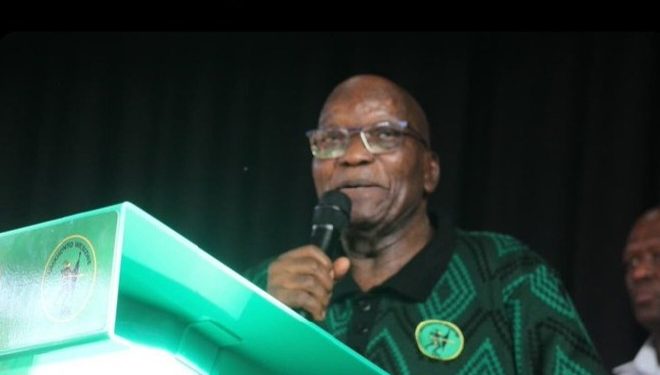Former president Jacob Zuma has intensified his political offensive against President Cyril Ramaphosa, openly calling for his arrest over what he alleges are serious breaches of the law. Speaking at a recent public gathering, Zuma accused Ramaphosa of violating constitutional principles and acting with impunity while in office.
Zuma’s remarks come at a time of heightened political tensions within the ruling African National Congress (ANC), where deep divisions between factions loyal to the two leaders continue to widen. His statement is seen as both a direct challenge to Ramaphosa’s authority and a calculated attempt to sway public opinion ahead of key political milestones.
“The law must apply equally to everyone,” Zuma told supporters. “We cannot allow a situation where the president himself is above accountability. He must be arrested for the wrongs he has committed.” While Zuma did not specify the legal grounds in detail during his address, his allies have previously cited the Phala Phala farm scandal and alleged abuse of state institutions as the basis for their demands.
Ramaphosa, who has consistently denied any wrongdoing, maintains that he has cooperated fully with all investigations into the farm matter and insists that no evidence of criminal activity has been found against him. His office has yet to respond directly to Zuma’s latest call but has previously described similar statements as politically motivated and aimed at destabilising the presidency.
Analysts argue that Zuma’s renewed offensive is part of a broader campaign to undermine Ramaphosa’s standing within the ANC, where internal battles are intensifying ahead of national elections. “This is not just a legal matter; it’s political theatre,” said political analyst Sandile Ndlovu. “Zuma is seeking to rally support and cast doubt on Ramaphosa’s legitimacy, while also deflecting from his own legal challenges.”
Zuma himself remains entangled in protracted legal proceedings related to corruption and state capture allegations, which his supporters dismiss as a witch-hunt. His latest remarks are likely to fuel further polarisation within the ANC and South African society, where the debate over leadership, accountability, and the rule of law continues to dominate public discourse.
As the standoff escalates, South Africans await whether Zuma’s provocative call for Ramaphosa’s arrest will gain traction beyond rhetoric—or remain another flashpoint in the country’s turbulent political landscape.





















